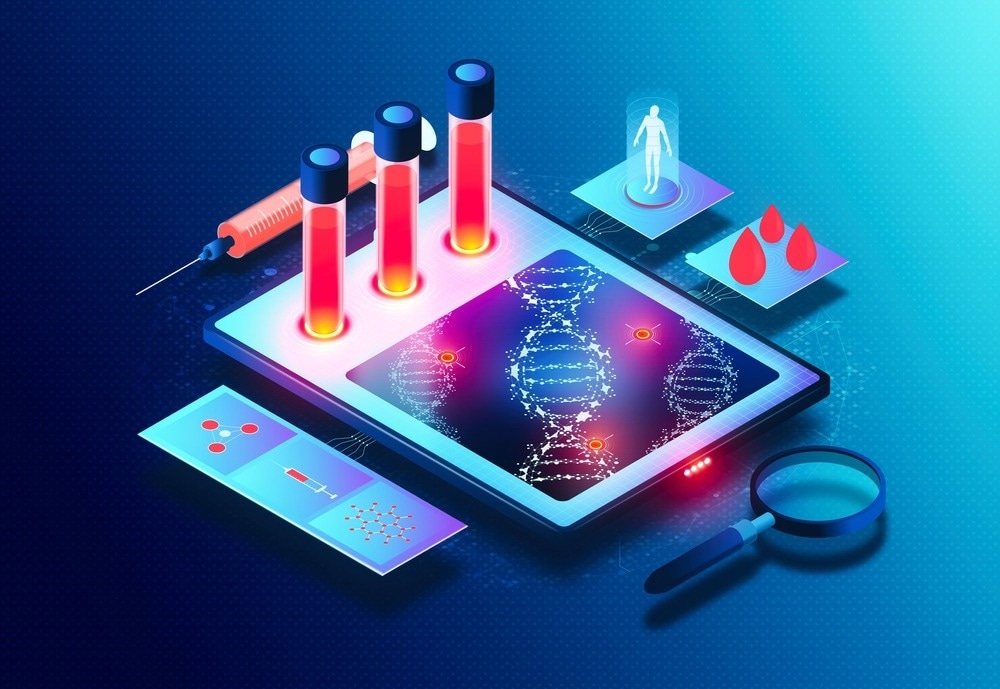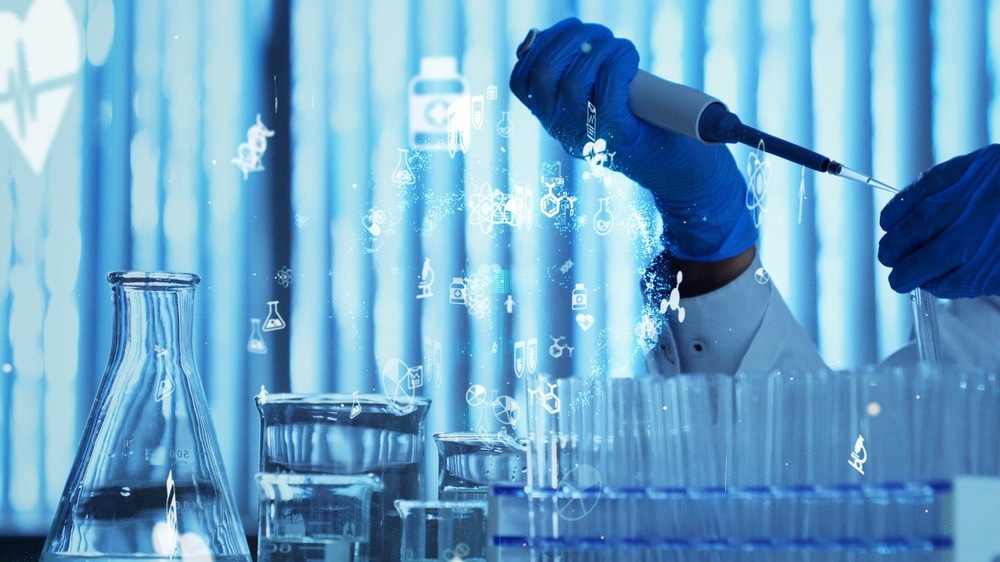Robust and reliable biomarkers have become a vital tool in healthcare. They are being used to facilitate drug discovery and development, improve diagnosis, enhance techniques that monitor drug activity and therapeutic response, as well as guide the development of precision medicine techniques.

Image Credit: ArtemisDiana/Shutterstock.com
Biomarkers are used at every stage of the drug discovery process. Here, we will review how they are used in this field and how they are paving the way to a future of precision medicine that will see breakthroughs in treating numerous diseases.
The history of biomarker use in health
Although biomarkers seem like a new and advanced concept, they have been used for centuries as indicators of various human health factors and have assisted our ancestors for generations in diagnosing disease. For example, arterial pulse was used by the ancient Chinese, Indian, Egyptian, and Greek to diagnose certain illnesses. In addition to arterial pulse, blood pressure, body temperature, and cholesterol levels have been used for many years as health indicators and are used by modern healthcare professionals globally.
Today, the term ‘biomarker’ has no official definition. However, it broadly refers to a biological parameter that can accurately and reliably be quantified or measured. The European Medicines Agency (EMA) defines a biomarker as a “biological molecule found in blood, other body fluids, or tissues that can be used to follow body processes and diseases in humans and animals”. The interpretation of the term is fairly diverse, and our currently accepted family of biomarkers includes physical parameters such as diastolic blood pressure, molecular parameters such as enzymes and blood glucose, and histologic and imaging characteristics such as angiography.
Biomarkers are not only widely used in diagnostics, but they are also becoming increasingly important to the drug discovery, development, and approval process. Biomarkers have many roles to play in the drug discovery journey, and they are yet to reach their full potential.
Biomarkers in drug discovery
Biomarkers act as clues to solving a mystery. When disease takes hold, it changes the processes in the body. As a result, various metabolites, proteins, and bodily functions can be altered. Often, studying the difference between certain biomarkers in people with a disease and those without can highlight how disease impacts the body.
We can make assumptions about the molecular pathways involved in disease depending on what we know about the certain biomarker or biomarkers that are implicated. This helps scientists to select agents that may have therapeutic value. Similarly, biomarkers are invaluable in deepening our understanding of mechanisms of action, as well as enhancing target selection and drug candidate selection.
Biomarkers can contribute to the rapid development of effective and safe therapeutics. Between 2015 and 2019, more than half of EMA and FDA drug approvals were supported by biomarker data in one or more of the drug’s development stages. In recent years, the acceptance of biomarkers has increased. For certain groups of pharmaceuticals, including immunosuppressants, immunostimulants, antithrombotic drugs, drugs used in diabetes, antineoplastic agents, and antivirals, market approval with the support of biomarkers is more common than approvals without.
One major challenge facing the biomarker field is the need for processes that can easily identify a reliable biomarker from a pool of potential biomarkers.
However, regardless of the resources and time currently required to fully develop a biomarker, drug developers are still increasingly using them due to the benefits they offer the drug discovery process, such as supporting the selection of the best and most appropriate drug candidates while significantly lowering costs and the probability that the drug may fail in clinical trials. Additionally, biomarkers facilitate regulatory and development decisions.
Biomarkers also reduce the number of patients required to demonstrate the clinical benefit of a drug in clinical trials, reducing the cost and some of the risks involved in clinical trials. In recent years, an increasing number of drugs approved by the FDA have used one or more surrogate markers (where biomarkers are used as a substitute endpoint) as primary endpoints for clinical studies. For example, two surrogate markers were used in Odefsey (treatment of HIV-1 infection) studies, which its approval was based on.

Image Credit: metamorworks/Shutterstock.com
Biomarkers and the precision medicine revolution
We cannot discuss biomarkers without discussing the emerging field of precision medicine. Naturally, biomarkers are helping to advance this field as they help scientists to understand how a particular group of patients will respond to a certain drug. For patients who have diseases that are, for some reason, resistant to traditional therapies, scientists are now beginning to develop novel drugs that are effective for these specific groups.
Currently, more than one-fifth of drugs approved by the FDA from 2014 to 2018 were categorized as ‘personalized medicines’. This percentage will likely grow over the next decade. Therefore, biomarkers will become even more important in drug discovery, as they are used to identify compounds that may be effective in precision medicine applications.
Sources:
- Davis, K.D. et al. (2020) “Discovery and validation of biomarkers to aid the development of safe and effective pain therapeutics: Challenges and opportunities,” Nature Reviews Neurology, 16(7), pp. 381–400. Available at: https://doi.org/10.1038/s41582-020-0362-2.
- Gromova, M. et al. (2020) “Biomarkers: Opportunities and challenges for drug development in the current regulatory landscape,” Biomarker Insights, 15, p. 117727192097465. Available at: https://doi.org/10.1177/1177271920974652.
- Hartl, D. et al. (2021) “Translational Precision Medicine: An industry perspective,” Journal of Translational Medicine, 19(1). Available at: https://doi.org/10.1186/s12967-021-02910-6.
Further Reading
Last Updated: Jan 27, 2023